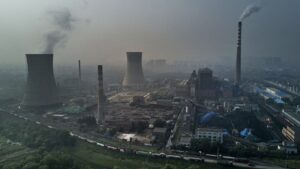
As “part of China,” we Hong Kongers have seen how China’s economic growth has contributed to the degradation of its environment. To be fair, Hong Kong’s economic takeoff had already harmed its environment before China took over the city. We . . .
Au Loong Yu was one of the founding members of Globalization Monitor, Hong Kong, and is also on its editorial board. He co-authored two Chinese books on China reform and on free trade and globalization. He was the main author of the booklet Women Migrant Workers under the Chinese Social Apartheid and the author of No Choice but to Fight — A documentary on battery women workers' struggle, (Globalization Monitor), forthcoming.

As “part of China,” we Hong Kongers have seen how China’s economic growth has contributed to the degradation of its environment. To be fair, Hong Kong’s economic takeoff had already harmed its environment before China took over the city. We . . .
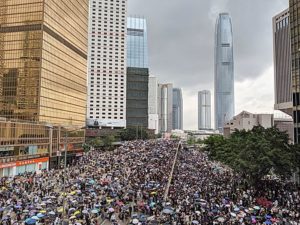
The western mainstream media tends to depict the situation of HK merely in a one dimensional manner, presenting Hong Kong a victim of Beijing’s tyranny while the US and the UK as supporters of Hong Kong’s autonomy and democracy. On . . .
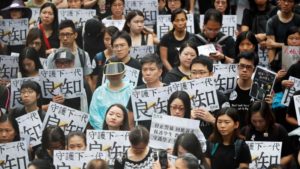
Hong Kong Teachers in Protest
The people of Hong Kong are in the fight of their lives against their own government and the Chinese Communist Party. Carrie Lam, the enclave’s chief executive, appointed by Beijing, earlier this year attempted to rush . . .
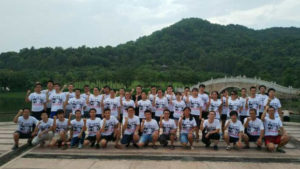
The Jasic case, in particular relationships that were forged between students and workers, reveals important developments in China’s politics.
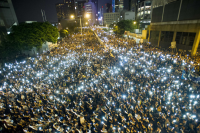
(An earlier version was translated by Bai Ruixue, but since then the Chinese version had been revised and partially translated by the author.)
Monday 29th September 2014/Occupy Central Day 3 – Occupy central continues to grow by leaps and bounds.
The publisher of Wang Hui’s book described it as follows: "arguing that China’s revolutionary history and its current liberalization are part of the same discourse of modernity, Wang Hui calls for alternatives to both its capitalist trajectory and its authoritarian past."
What follows is our review of the book in the light of this description: how far this assessment is correct, and how relevant it is for those social activists who are pursuing just such an alternative in China.
CHINA’S THIRTY YEARS OF NEARLY UNINTERRUPTED HIGH GROWTH has encountered great challenge as the global economic crisis has hit China’s export hard. Since China’s trade as a percentage of GDP is as high as 70 percent, the export-led growth mode has practically ended. The Chinese Communist Party (CCP) is aware of this. Back in April, 2008 President Hu Jintao spoke of the need to change the mode of development from export-led growth to domestic-led growth by expanding domestic demand.